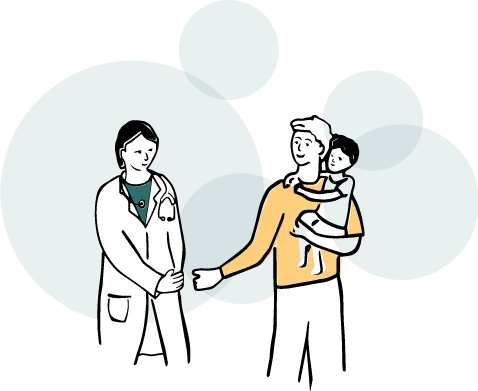

Hunter syndrome (MPS II) in a young patient (<3 years)
Russell was diagnosed with Hunter syndrome before his 3rd birthday, when he had already undergone two surgeries. At a young age he presented with an inguinal hernia,1 which after a period of observation was repaired. Russell suffered from chronic tonsillitis and recurrent ear infections;1 his doctor referred him to an ENT specialist to try to establish and treat the cause.
The ENT physician eventually recommended a tonsillectomy.2 Russell’s physician kept track of his case and the combination of these symptoms and surgeries flagged to him the possibility of Hunter syndrome.2-4 Russell was referred to a clinical geneticist, who confirmed a diagnosis of Hunter syndrome.4



Repeated surgeries – including inguinal hernia repair, tonsillectomy2

Recurrent ear infections1
The typical diagnostic delay for Hunter syndrome is several years.4 Symptoms that overlap with common childhood complaints and repeated early surgeries should prompt clinical suspicion of Hunter syndrome.4 Early referral and diagnosis before irreversible damage occurs is critical to help optimize patient outcomes.4
*This is a hypothetical patient profile intended to represent a young patient with non-neuropathic Hunter syndrome. Individual signs and symptoms may vary.
1. Martin R et al. Pediatrics. 2008;121(2):e377-e386. 2. Mendelsohn NJ et al. Genet Med. 2010;12(12):816-822. 3. Wraith JE et al. Eur J Pediatr. 2008;167(3):267-277. 4. Burton BK, Giugliani R. Eur J Pediatr. 2012;171(4):631-639.
Hunter syndrome is a
progressive genetic disease
If you suspect Hunter syndrome, refer your patient to a metabolic geneticist for an accurate diagnosis.